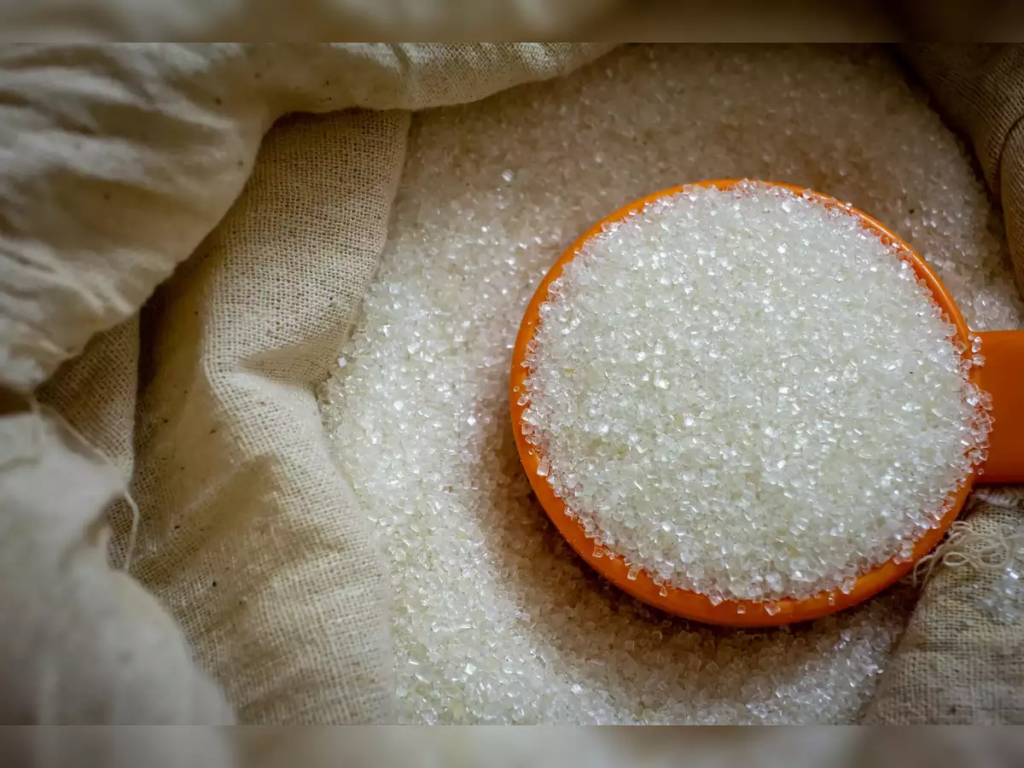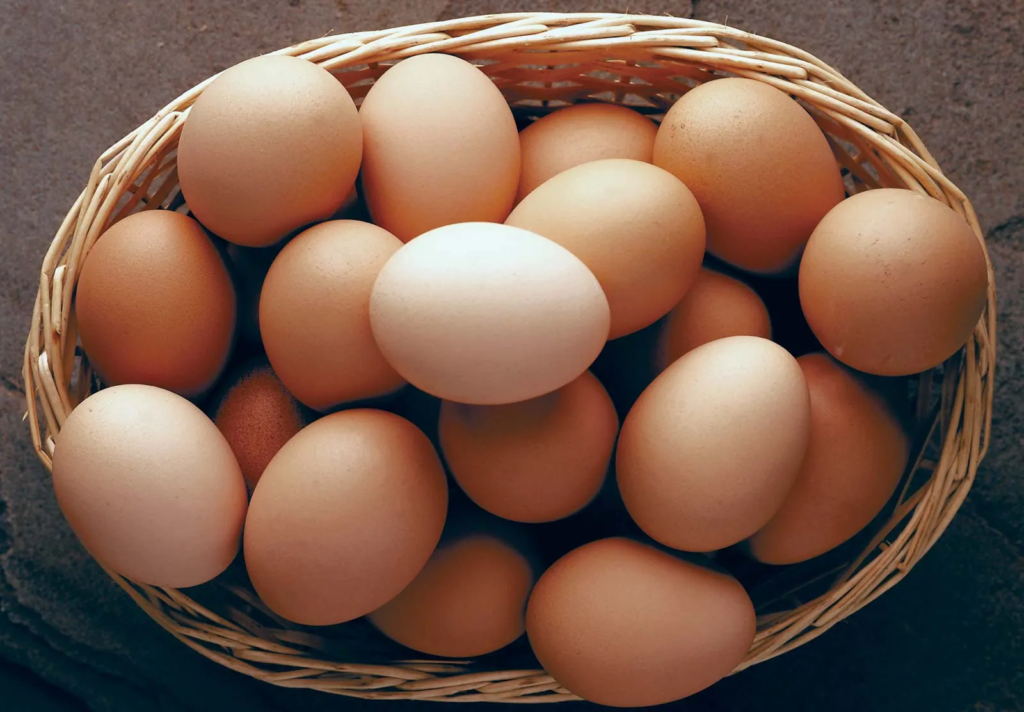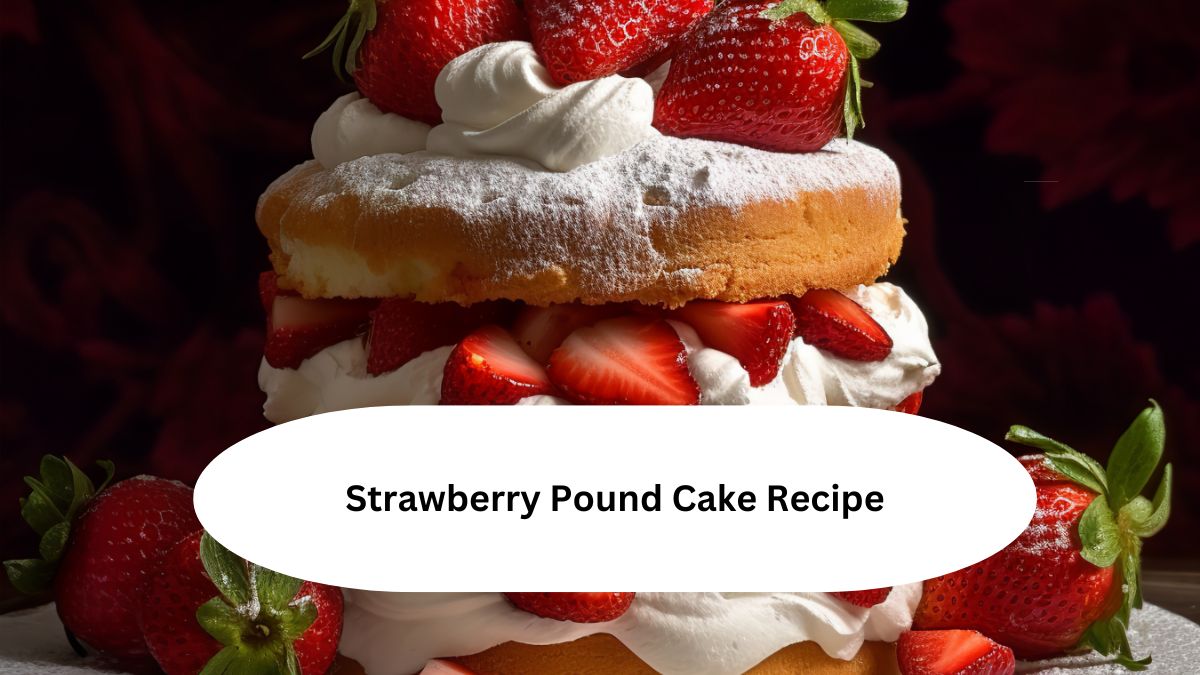Pound cakes, with their dense, moist texture and buttery flavor, have been a beloved staple in baking for centuries. Originating in Europe, these cakes earned their name from the traditional recipe that called for a pound each of butter, sugar, eggs, and flour. Today, we embark on a journey to elevate this classic with the infusion of a seasonal favorite – fresh strawberries. Join me as we explore the science, art, and joy behind creating a Strawberry Pound Cake, a delightful twist on a timeless treat.
Pound Cake Essentials:

Before we dive into the strawberry-infused goodness, let’s revisit the basic components of a pound cake. The foundation of any great pound cake lies in the balance and interaction of its key ingredients.
Butter:
The unsalted butter is the backbone of the pound cake, contributing not only to its rich flavor but also to the moist, tender crumb that we all cherish. When creamed with sugar, butter creates a structure that traps air, resulting in the cake’s light texture.
Sugar:

Granulated sugar not only sweetens our pound cake but also plays a crucial role in the cake’s texture. As sugar combines with the butter, it creates air pockets, contributing to the cake’s rise during baking.
Eggs:

Large eggs, added one at a time, bring moisture and structure to the pound cake. The proteins in the eggs act as binders, helping to hold the cake together, while the yolks contribute to its richness.
Flour:

All-purpose flour serves as the foundation, providing the necessary structure for the cake. It’s essential to sift the flour to prevent lumps and ensure a smooth batter.
Leavening Agents:

A delicate balance of baking powder and baking soda gives our pound cake its rise. Baking powder provides immediate lift, while baking soda reacts with the acidic sour cream to further leaven the cake during baking.
Vanilla Extract:

Pure vanilla extract elevates the flavor, adding a warm, sweet note that complements the richness of the butter.
The Strawberry Swirl:
Now, let’s turn our attention to the star of our show – the strawberry swirl. Incorporating fresh strawberries introduces a burst of color, flavor, and moisture that takes our pound cake to new heights.
Selecting the Perfect Strawberries:

When choosing strawberries, opt for ripe, fragrant ones. Their natural sweetness and vibrant color will enhance the overall quality of the strawberry swirl. Consider seasonal variations or local varieties for an extra layer of freshness.
Preparing the Strawberry Puree:

To create the swirl, we blend fresh strawberries with a touch of granulated sugar and a hint of lemon juice. The sugar enhances the strawberries’ natural sweetness, and the lemon juice adds a subtle brightness, creating a well-balanced puree.
Baking Techniques:
Now that our batter is prepared and the strawberry swirl is ready, let’s delve into the art of baking the perfect Strawberry Pound Cake.
Layering the Batter:

Spoon half of the pound cake batter into the prepared bundt pan, creating a base for the strawberry swirl. By layering the batter, we ensure an even distribution of the strawberry goodness throughout the cake.
Swirling and Marbleizing:

Using a butter knife or skewer, gently swirl the strawberry mixture into the batter. This technique not only creates an eye-catching marble effect but also ensures each slice is a delightful fusion of buttery pound cake and sweet strawberry goodness.
The Science of Baking Times:

The key to a perfectly baked pound cake lies in understanding the science behind baking times and temperatures. A moderate oven temperature of 325°F (163°C) allows the cake to bake evenly, while the toothpick test, inserted into the center, ensures it’s baked to perfection. Be vigilant to avoid overbaking, as this can result in a dry cake.
Conclusion:
As the tantalizing aroma of our Strawberry Pound Cake fills the kitchen, we reflect on the journey we’ve undertaken. From understanding the intricacies of pound cake essentials to mastering the art of creating a strawberry swirl, we’ve embraced both the science and joy of baking. Whether shared with loved ones or savored in solitude, this Strawberry Pound Cake is more than a dessert – it’s a celebration of the sweet moments we create in the kitchen. So, go ahead, slice into this masterpiece, and savor the delightful culmination of flavors and textures that only a well-crafted pound cake can offer. Happy baking!






